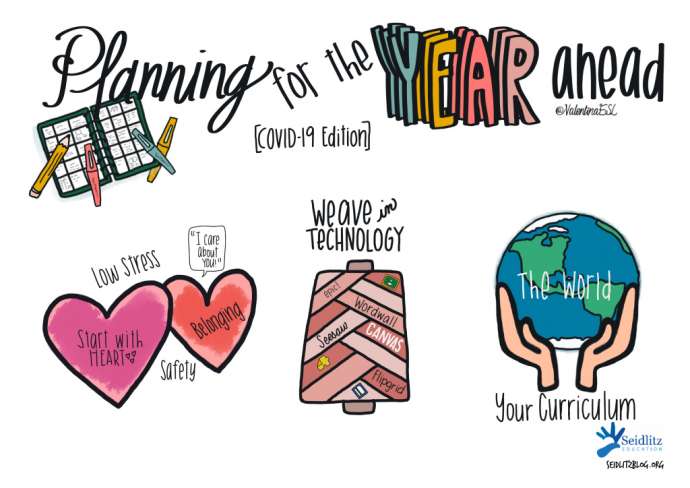September 26, 2020 - Elementary and high school students in Montenegro should start the new school year on October 1, which will take place in conditions adapted to the current epidemiological situation. According to the Ministry of Education plan, students in the last three grades of primary and upper secondary school levels will attend classes entirely online, with the organization of examinations at the school. Students in other years will go to school in groups of a maximum of 15 children, with the obligatory wearing of protective masks. Is the decision discriminatory? And what impact will it have on children's psycho-social development at adolescence?
In general, the situation surrounding the COVID-19 epidemic has affected children in different ways, points out pedagogue Dr.Sci Jelena Perunovic Samardzic. In addition to the impact on education, there is also a broad impact on their mental health.
"The children have faced a lot. They've put up with isolation, with the story of the deadly virus, they're bombarded with these things every day, both through the media and from other sources on all sides - they are scared and confused. They've been taught to fear things, in a certain way. What is very unusual for them is that during the isolation, which is still present in a way, is that have been in far less contact with their peers, which leaves a mark on them, both in the socio-emotional and psychological sense. It was especially prevalent during the first wave of the epidemic. And yet it has an impact even now, assuming that we are socially responsible and teach our children such behavior. We have to change our habits and give children an example to follow so that they accept the new reality," says Dr. Perunovic Samardzic.
"I think we will have a problem now that the children need to go to kindergarten and school. School children will face the situation whereby they have to maintain physical distance and not have contact with their friends and teachers. When they are in groups, it will be difficult for them to adhere to the measures, and that will certainly affect them," says Dr. Perunovic Samardzic.
The Ministry of Education has presented the necessary recommendations for the organization of classes in the school year 2020/21. Following the personnel and space capacities, the administrations of each school in Montenegro will have to respond. The summer months were used to review European practices in the organization of online teaching and train 2,000 teachers from all over Montenegro, enabling a better quality of educational process in the coming period. However, the questions without answers do not only affect education and barriers of a technical nature. Seventh, eighth, and ninth-grade students are "condemned" to a lack of interaction with peers, which can have severe consequences for them.
"Online teaching is a useful tool, but I think it is not enough, and is certainly not the best way for students to acquire knowledge, especially when it comes to adolescents. In general, we know how much children at that age behave rebelliously towards imposed situations, so it won't be easy to get and keep their attention. Children at this age learn tolerance, empathy, experience the first disappointments, and fall in love for the first time. The fact that they will not go to school deprives them of a large part of the social space in which all this takes place."
Students in the most sensitive period are discriminated against compared with other children, by being completely denied school desks, and consequences for their psycho-social development can be expected.
"During distance learning, solidarity, empathy is lost; there is no socializing, no establishing new friendships. Therefore, there is no falling in love, which is an integral part of personality formation. Consequently, I think that this type of teaching is hazardous for the socialization of children and, in general, for their functioning later in life, "says Dr. Perunovic Samardzic.
In cooperation with the British Embassy in Montenegro, UNICEF conducted a survey questioning parents' opinions on whether children in the current situation should attend school in the classical way or online. More than 73 percent of parents believe that children should attend school regularly regardless of the epidemiological situation. Dr. Perunovic Samardzic believes their position is completely justified from the pedagogical point of view.
"There were several suggestions and possible models to organize classes. The Ministry of Education has decided on an organization that means that students in the last cycle of primary education, as well as upper grades of high school, attend school entirely online," says Dr. Perunovic Samardzic. As to whether there is a pedagogical justification for such a division of children by age, Dr. Perunovic Samardzic explained:
"I believe that children are discriminated against by age without any pedagogical justification. Especially because of the sensitivity of the age we are talking about and the importance of socialization during adolescence. There is no justification for leaving their developmental interests aside. As parents, and we will do it from the profession's perspective, we should appeal to the Ministry of Education to allow those children to attend classes according to the classical model as much as possible in the current epidemiological situation."
We must enable our children to function normally as far as is possible. Dr. Perunovic Samardzic concludes by emphasizing that the current situation is no excuse not to do our best to provide children with the best conditions for mental, physical, socio-emotional, and psychological development.








